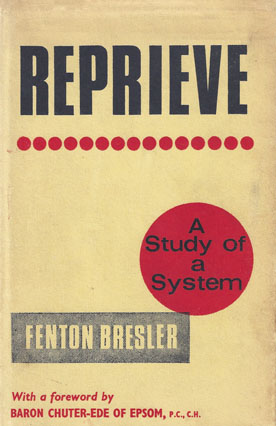
Out of Print
Over 2,000 years of British history are coming to an end. The death penalty for murder has almost certainly been abolished and a story that started in 400 B.C. when offenders were thrown into bogs to drown has finished.
Never before has the full history of capital punishment in England been told. Never before has an account been published of the reprieve system: that strange and obscure corner of the English legal world. It took thirteen people-twelve jurors and a judge-to convict a capital prisoner and sentence him to death. They did so publicly with great ceremony and pomp. But the ultimate decision -whether or not he would, in fact, die-was taken without publicity, in secrecy and by one man alone: the Home Secretary.
How did he do it ? What were the rules, if any ? What decided whether one capital murderer should die and another live ? Was justice always done ?
Fenton Bresler, a barrister and well-known writer, has traced the development of the State machinery of execution from its very beginnings in pre-Roman Britain to the modern time-table from trial to reprieve-or its alternative: death by hanging.
Doors, normally closed, were opened to the author. Retired judges, ex-Home Secretaries, sons of dead Home Secretaries who remembered their fathers discussing their cases, barristers, solicitors, senior civil servants, doctors, pathologists, social workers, politicians, the relatives of hanged men-and reprieved prisoners themselves-have talked to him.